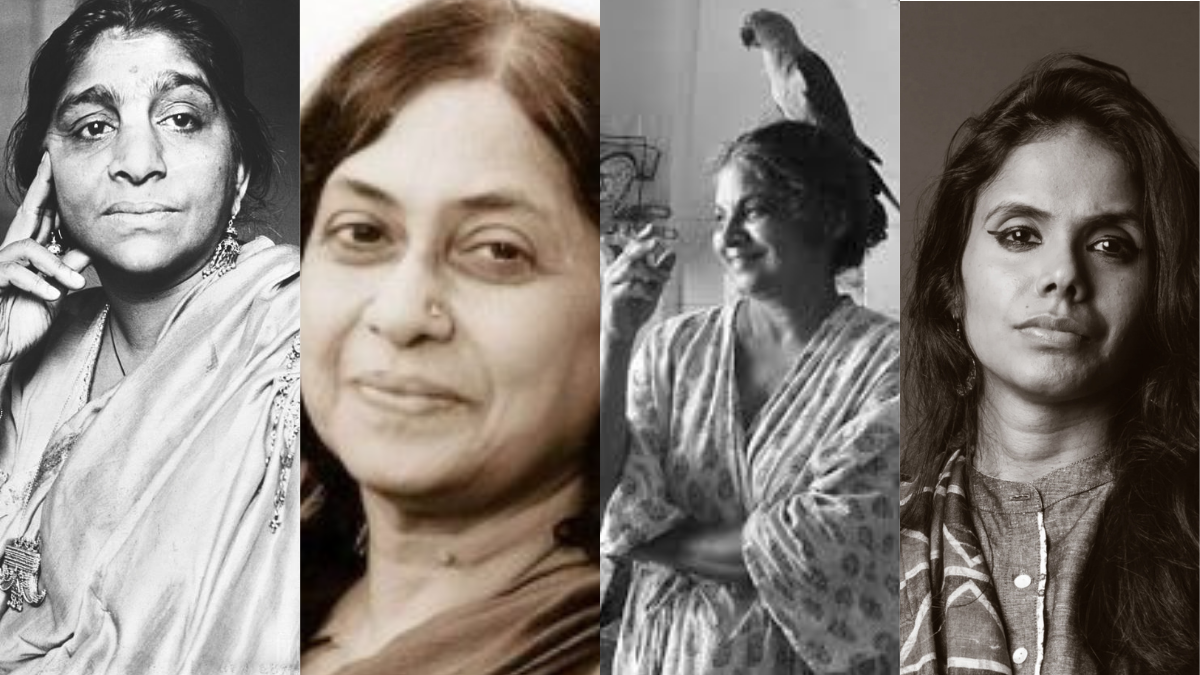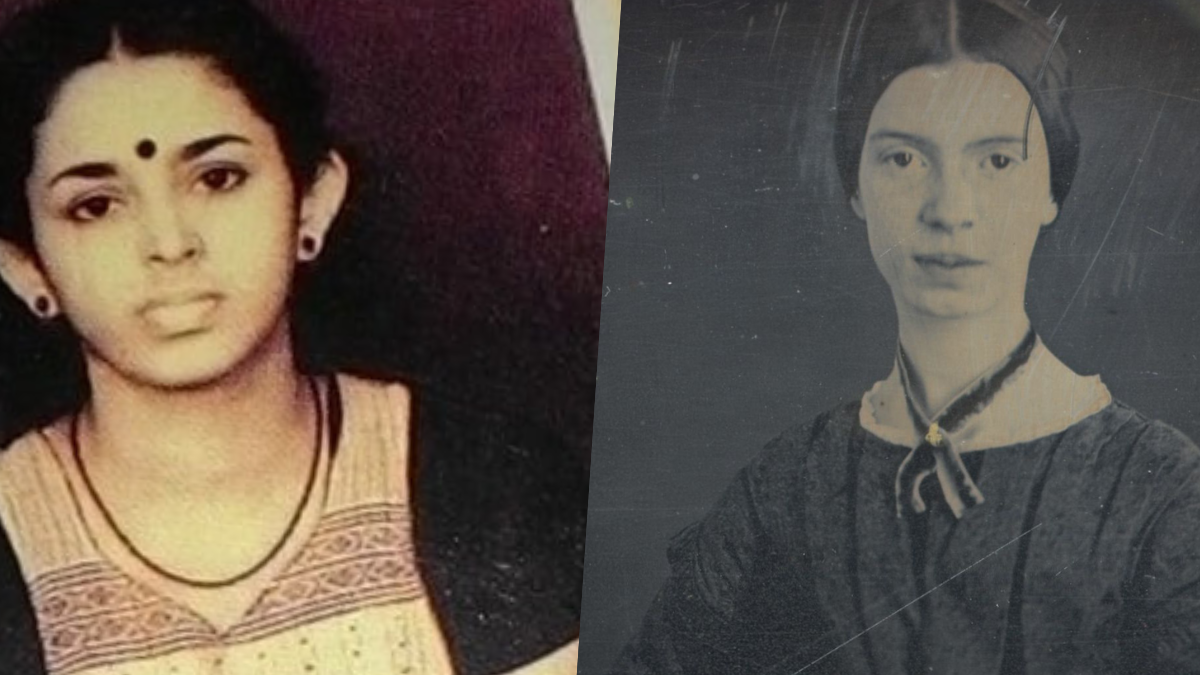“In the dark times will there also be singing? Yes, there will also be singing. About the dark times.” – Bertolt Brecht
Poems convey philosophy, succinctly and with rhythm. The music that Brecht alludes to, I am convinced, is the music implicit in poetry. Sometimes we lose hope, and find ourselves in situations when we no longer can think of change in constructive ways, doubtful if anything will alter social realities. With all the bleakness around, poetry allows us to continue to persist in face of despair. It is powerful because, in a few words, a lot is said.
For too long men have written about women. I began to look at feminist poetry written by South Asian poets a few months back, mulling over gender discourse in vernacular languages and everyday life apart from the exclusionary academic language which it is often ensconced in. Poetry, like every other art form, is deeply rooted in the socio-economic and political milieu of the poet. Thus, poetry cannot help but be political.
The poems I list below are some of the poems that made me think about questions of being a woman in a deeply patriarchal society such as ours. These poems break my heart, but at the same time, a sense of hope ensues every time I read or recite them. In this incongruity lies the strength of art – it can disturb the comfortable and comfort those who are disturbed. These poets’ work resound profoundly within the feminist discourse, while also being distant from the usual elite leanings associated with academia.
The first poem is Makhi by Kishwar Naheed. Born in 1940, Kishwar Naheed is a feminist Urdu poet from Pakistan. She has written several poetry books. Her first poetry collection Lab-i-goya was published in 1968 that won the Adamjee Prize of Literature. She also writes for children.
‘Sabke liye nā-pasandīda uḌtī makkhī
(The fly – unwanted by one and all)*
Kitnī āzādī se mere muñh aur mere hāthoñ par baiThtī hai
(has such freedom to come sit on my nose)
Aur is roz-marrase āzād hai jismeñ main qaid huuñ’
(and it is free from the everyday which imprisons me)
This is the stark opening to her poem. While it reads like an individual narrative, it documents the experiences of countless women who are subjected to the structural violence of patriarchy and rings true even in contemporary times. The poem is angry in the end when she exclaims:
Magar mujhe makkhī jitnī āzādī bhī tum kahāñ de sakoge
(But you can’t even give me the kind of freedom the fly enjoys)
Tumne aurat ko makkhī banākar botal meñ band karnā sīkhā hai.
(You have learnt to imprison women like you imprision flies in the bottle.)
But in the following lines she indicates:
Merā bhī jī nahīñ kartā ki tum mere bachche ke baap bano
(My heart doesn’t want you to be the father of my children)
Mirā badan merī ḳhvāhish kā ehtirām kartā hai
(My body respects my wishes)
Main apne niilo niil badan se pyaar kartī huuñ’
(I love each and every corner of my bruised body)
Kishwar Naheed celebrates women’s agency and bodily autonomy. She asserts her love for every inch of her bruised body. This poem uses the metaphor of Makhi (fly) to refer to the subjugation of women and brings forth the everyday questions we brush under the carpet. No banality, no clichés; Naheed uses bare prose to protest gender-based injustice. This is a common theme in her poems, like The Grass Is Also Like Me.
The grass is also like me
As soon as it can raise its head
the lawnmower
obsessed with flattening it into velvet,
mows it down again.
How you strive and endeavour
to level woman down too!
But neither the earth’s nor woman’s
desire to manifest life dies.
Second up is Savita Singh’s poem Aurat. Savita Singh was born in Arrah, Bihar and spent most of her childhood in the Middle East. She did her M.A and M.Phil from Delhi University and moved to McGill University for higher studies. She has published three collections of poetry in Hindi: “Apne Jaisa Jeevan” (A Life Like Its Own, 2001) and “Neend Thee Aur Raat Thee” (There was Sleep and There was Night, 2005) and “Swapna Samay” (Dream Time), (2013).
In this particular poem she looks at how a woman is always the second sex in the society. She is a mother, sister, daughter, wife and all the other roles that she plays all the time and never a woman, never an individual. A woman is always understood with respect to the man. She is always treated as incomplete unless associated with the other individuals making her always and forever the second sex. She starts with:
Main kiski aurat hun?
(Whose woman am I?)
Kaun hai mera parmeshwar?
(Who is my god?)
Kiska diya khati hoon?
(On whose bread do I survive?)
Kiska maar sahti hoon?
(Whose beatings do I endure?)
It is evocative and asks the reader to rethink this power matrix. This poem speaks at so many levels and is more than relevant in the contemporary times. She talks about what it is to be a woman – is a woman always someone else’s? Does she have a personhood of her own, an individual self? Simply put, her message is that we cannot wait for men to grant us our rights. We can acknowledge the constraints we are subjected to, but must urge the transgression of these rigid patriarchal rules. Savita Singh seeks to redefine womanhood by seeking liberation through her own means, without waiting for someone to come and liberate her.
The third and final poem is Oh Achchi Ladkiyon (Oh, Good Girls) by Pratibha Katiyar, which is very relevant to our times. We often hear people telling women to “not be that kind of girl” which is just another way of denigrating women. It is the classic case of stereotyping that is ever so prevalent. The title has a subtle satirical tone, criticising the ‘achchi’ and the ‘not so achchi’ factions that society creates, the labels that women become under gaze of the neighbourhood aunties and uncles, and the ever present samaj (society) which constantly tells how to be a ‘good’ woman and what is acceptable. The samaj wants us to dress, talk, and eat as it dictates. This poem is a way of talking to the women who have accepted the choices handed down to them by samaj without questioning them.
Suno utar do apne sar se achche hone ka bojh
(Take this weight of being good off your shoulders)
Lehraon na aasman tak apna aanchal.
(Let your stole soar high in the sky)
Oh! Achchi ladkiyon ab kisika nai sambhalo sirf apna maan!
(Oh good girls, now stand up for your own self)
The labels that women are endowed with sometimes change the way they look at their bodies, how they think about themselves and can be a source of highly negative influence in realising their own self. Pratibha Katiyar beeseeches these women to imagine themselves as full individuals with independent aspirations and needs.
All of the above poems are the singing that is needed in dark times as ours where misogyny threatens our very existence. While gender being written about, researched and discussed in the social sciences is important, it is accessible only by a select few. There is something poems tell us that escape other narratives like academic writing, nonfiction, textbooks. That is why it is even more important to understand how literature, poetry and art is political by its very nature. It becomes increasingly important to read and write about the social realities as they are to begin to address social inequality in some constructive sense.
Every single poet mentioned above is looking at the existing world through a gendered lens which is deeply felt as living experience. These poems are a dialogue – written by women, about women, and for women. They are a way of coming together, seeking answers and raising questions.
Also Read: 7 Indian Feminist Poets You Need To Know About
*All translations have been done by the author of this piece, Vaishnavi Mahurkar.
About the author(s)
Vaishnavi Mahurkar has Masters in Development at Azim Premji University, Bangalore. Her personal interests include literature, poetry, and cinema. She likes to ask difficult questions about the everyday social and is captivated by conversations on the anthropology of politics, resistance movements, art, and society.





Dear Feminism in India and Vaishnavi though each of the women writers/poem here deserves the place and limelight please check the facebook comments on this post at facebook, I and friends feel make another post that is more inclusive of more and more women writers. Thanks !